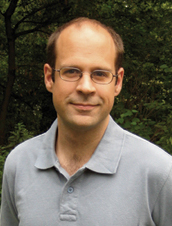Dedicated Parks Funding
Many residents identify Maplewood's parks, trails, and open spaces as key to our community's attractiveness. Besides their inherent benefits, a well-maintained system of these assets increases the appeal and value of property in our city as a whole.
Last August the city council held a joint workshop with the Parks & Recreation Commission. A major topic of that meeting was the challenge of funding our parks.
Changing Needs
Historically, as a growing suburb, Maplewood has relied upon the Park Availability Charge, or PAC, which is charged on each unit of new development in the city. Collection of this charge is authorized by Minnesota Statutes 462.358 Subdivisions 2b and 2c. As explained by a League of Minnesota Cities brief on the subject, the statutes authorizing park dedication charges like our PAC “are premised on the assumption that new development (and not existing taxpayers) ought to pay for the additional park and recreation facilities needed to accommodate the demands created by the new development.” The statute limits the use of the funds, which “may not be used for ongoing operation or maintenance.”
As Maplewood nears full development, there are fewer opportunities for new park and recreation facilities. However, the aging of our existing facilities means a growing need to fund their repair and replacement. In the future we can expect the need for funding to grow, when the parks and trails that we have been expanding in recent years reach the point in their life when they require repair or reconstruction. Thus the nature of our park funding needs is changing, and the trend will continue. Now and in the future the city council will be worrying less about acquiring land or building new park facilities, and more about replacing deteriorated playground equipment, sports fields, and trail segments.
This growing need must be set against the realities of the budget process each year. I believe many residents would support increased funding for our parks, trails, and open space; but as our city sets its short-term priorities, it is very easy to short-change our parks when their funding is part of the general tax levy. Unlike capital projects such as street improvements that can be assessed and bonded with relative ease, capital improvements to our parks and open spaces generally must be paid for from funds on hand.
I believe Maplewood needs to look for a dedicated funding source for the maintenance and repair/replacement needs of Maplewood parks, trails, and open space.
EFF as Potential Dedicated Funding
One option we can consider is to dedicate the Electric Franchise Fee as this funding source. I think there are several reasons the EFF may be appropriate.
The EFF is collected from every electric utility customer in the city. This includes entities that are exempt from property taxes (such as private and public schools, churches, and government facilities) but that do benefit from city parks, trails and open space. The EFF is thus an existing mechanism for collecting fees from a broad base of individuals and institutions that benefit directly or indirectly from our parks, trails and open space.
There several possible ways to dedicate this funding. It could be a whole or partial dedication of the current EFF, which is 50 cents per month on residential electric customers. The EFF could be increased, with the increase (with our without part of the current EFF) being dedicated to a park, trail, and open space maintenance fund.
From the standpoint of building community support, I think the EFF would make it easier for residents to see a direct relationship between what they pay and what they receive – for example, 25 cents per month on a residential household would equate to something over $90,000 per year that would go directly to needed capital improvements to our parks system.
Using the EFF has its downside. It has been controversial in the past. It can be seen as a regressive tax: unlike property taxes, it does not have any implicit relationship to the assets of the payer or their ability to pay. It is not tax deductible as property taxes are. I opposed an increase in the EFF three years ago, when it appeared to be proposed as a way to hold down property taxes on the most valuable homes in the city and shift the burden to renters and owners of less valuable houses. In that case, however, the money was going into general city operations (it was proposed to be used for energy purposes, but that umbrella covered things like the heating bill at the community center).
Of course, every funding mechanism has its drawbacks. For example, due to fiscal disparities contributions, in order to fund parks through property taxes we actually have to levy more taxes than would actually go to parks, in order to account for the program that redistributes a portion of our property tax receipts to neighboring communities.
Next Steps
I bought this proposal to the Parks & Recreation Commission as a Visitor Presentation on March 18th in an effort to move our discussion about parks, trails and open space funding forward. The City Council and Parks Commission have already identified the need for dedicated funding for our parks system; we need to move on to explore specific ideas of how to accomplish the goal.
If the parks commission is willing to explore this idea, my hope is that they will develop a policy recommendation for the city council. I am also hoping that discussion of this idea may bring forth additional ideas of practical funding mechanisms to help us assure a safe and healthy park system that will serve our residents today and in generations to come.
Last August the city council held a joint workshop with the Parks & Recreation Commission. A major topic of that meeting was the challenge of funding our parks.
Changing Needs
Historically, as a growing suburb, Maplewood has relied upon the Park Availability Charge, or PAC, which is charged on each unit of new development in the city. Collection of this charge is authorized by Minnesota Statutes 462.358 Subdivisions 2b and 2c. As explained by a League of Minnesota Cities brief on the subject, the statutes authorizing park dedication charges like our PAC “are premised on the assumption that new development (and not existing taxpayers) ought to pay for the additional park and recreation facilities needed to accommodate the demands created by the new development.” The statute limits the use of the funds, which “may not be used for ongoing operation or maintenance.”
As Maplewood nears full development, there are fewer opportunities for new park and recreation facilities. However, the aging of our existing facilities means a growing need to fund their repair and replacement. In the future we can expect the need for funding to grow, when the parks and trails that we have been expanding in recent years reach the point in their life when they require repair or reconstruction. Thus the nature of our park funding needs is changing, and the trend will continue. Now and in the future the city council will be worrying less about acquiring land or building new park facilities, and more about replacing deteriorated playground equipment, sports fields, and trail segments.
This growing need must be set against the realities of the budget process each year. I believe many residents would support increased funding for our parks, trails, and open space; but as our city sets its short-term priorities, it is very easy to short-change our parks when their funding is part of the general tax levy. Unlike capital projects such as street improvements that can be assessed and bonded with relative ease, capital improvements to our parks and open spaces generally must be paid for from funds on hand.
I believe Maplewood needs to look for a dedicated funding source for the maintenance and repair/replacement needs of Maplewood parks, trails, and open space.
EFF as Potential Dedicated Funding
One option we can consider is to dedicate the Electric Franchise Fee as this funding source. I think there are several reasons the EFF may be appropriate.
The EFF is collected from every electric utility customer in the city. This includes entities that are exempt from property taxes (such as private and public schools, churches, and government facilities) but that do benefit from city parks, trails and open space. The EFF is thus an existing mechanism for collecting fees from a broad base of individuals and institutions that benefit directly or indirectly from our parks, trails and open space.
There several possible ways to dedicate this funding. It could be a whole or partial dedication of the current EFF, which is 50 cents per month on residential electric customers. The EFF could be increased, with the increase (with our without part of the current EFF) being dedicated to a park, trail, and open space maintenance fund.
From the standpoint of building community support, I think the EFF would make it easier for residents to see a direct relationship between what they pay and what they receive – for example, 25 cents per month on a residential household would equate to something over $90,000 per year that would go directly to needed capital improvements to our parks system.
Using the EFF has its downside. It has been controversial in the past. It can be seen as a regressive tax: unlike property taxes, it does not have any implicit relationship to the assets of the payer or their ability to pay. It is not tax deductible as property taxes are. I opposed an increase in the EFF three years ago, when it appeared to be proposed as a way to hold down property taxes on the most valuable homes in the city and shift the burden to renters and owners of less valuable houses. In that case, however, the money was going into general city operations (it was proposed to be used for energy purposes, but that umbrella covered things like the heating bill at the community center).
Of course, every funding mechanism has its drawbacks. For example, due to fiscal disparities contributions, in order to fund parks through property taxes we actually have to levy more taxes than would actually go to parks, in order to account for the program that redistributes a portion of our property tax receipts to neighboring communities.
Next Steps
I bought this proposal to the Parks & Recreation Commission as a Visitor Presentation on March 18th in an effort to move our discussion about parks, trails and open space funding forward. The City Council and Parks Commission have already identified the need for dedicated funding for our parks system; we need to move on to explore specific ideas of how to accomplish the goal.
If the parks commission is willing to explore this idea, my hope is that they will develop a policy recommendation for the city council. I am also hoping that discussion of this idea may bring forth additional ideas of practical funding mechanisms to help us assure a safe and healthy park system that will serve our residents today and in generations to come.


Post a Comment